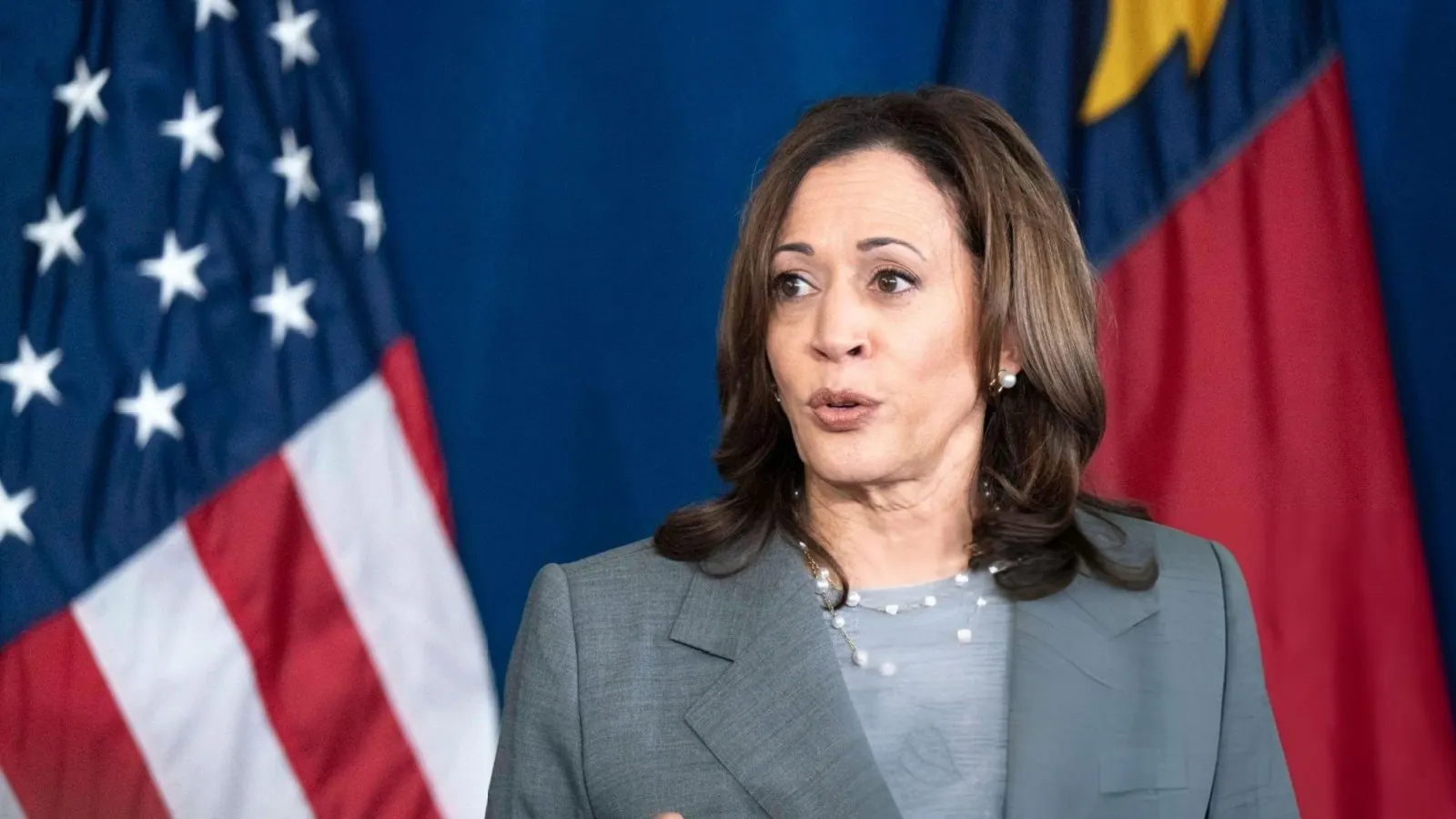Kamala Harris has a narrow lead over Donald Trump in a recent Reuters/Ipsos poll, but crypto prediction market Polymarket has the former president winning by a sizable margin.
After President Joe Biden dropped out of the race amid concerns over his odds as a candidate, Vice President Harris emerged as the most likely Democratic nominee. In a recent national poll, Harris leads Trump 44% to 42% within a 3 percentage point margin of error. That means in the worst case, Harris would be trailing Trump by 1%, according to the poll.
Those odds are in stark contrast to crypto prediction market Polymarket, which has Trump ahead with a 62% chance of winning the election, and Harris trailing behind at 36%. But as a crypto gambling site, the audience wagering money on Polymarket is narrowed quite significantly.
Kamala Harris just surpassed Biden's pre-debate odds. pic.twitter.com/X7IFomid2i
— Polymarket (@Polymarket) July 23, 2024
For starters: American citizens have been blocked from betting on the site since 2022—although in some cases U.S. users have tried to circumvent geographic restrictions with Virtual Private Networks (VPNs). And according to a Security report, only 40% of American adults own crypto and would be potential users of the popular prediction market.
Both those factors skew the extent to which Polymarket betting pools might represent the potential voting habits of U.S. citizens.
It's important to note that Polymarket hasn't said that its betting pools are the equivalent of national polls. But it also hasn't shied away from that comparison either.
In a recent announcement that statistician and FiveThirtyEight founder Nate Silver had joined the company's advisory board, Polymarket said it had become a vital source of trusted real-time information in the run up to the 2024 election. "Polymarket forecasts are consistently cited as a source of real-time truth by politicians and media outlets, as well as relied upon by millions of news consumers worldwide," the company wrote.
Polymarket did not immediately respond to a request for comment from Decrypt.
How traditional polls work
As for the Reuters/Ipsos poll, the nationwide survey was conducted on July 22 and 23 with a sample of 1,241 U.S. adults. Some have highlighted that 4% more registered Democrats were polled than Republicans. It’s possible the makeup of the sample skewed the poll, but Ipsos itself says it has ways to deal with that.
“This is why we apply weights to the data to bring the survey sample into alignment with the population,” an Ipsos public affairs spokesperson told Decrypt. “The weighted sample, which is what matters for our published data, is 42% Republican, 40% Democratic, 18% independent/something else/refused.”
While the recent poll may be shocking to some, it does align with a July 15 to 16 poll—before Biden dropped out of the race—that saw Harris and Trump tied at 44%. Trump led Harris by just one percentage point at the beginning of July.
But it’s important to note that U.S. election polls have often been wrong.
In the 2016 election, one Reuters/Ipsos poll gave Hillary Clinton a 90% chance of defeating Trump. But Trump went on to win. Ahead of the 2020 election, American Association of Public Opinion Research claimed that polls were seeing the highest error margins in 40 years.
“We do not recommend building a forecast of future events based on a single, or even handful, of polls,” the Ipsos spokesperson told Decrypt, “The fundamentals of the election, a public restive about the economy, a generally unpopular president, now a non-incumbent running, would suggest the challenger (in this case Trump) would be favored.”
Edited by Stacy Elliott.

